‘Truman & Tennessee’ profiles the creativity of two icons
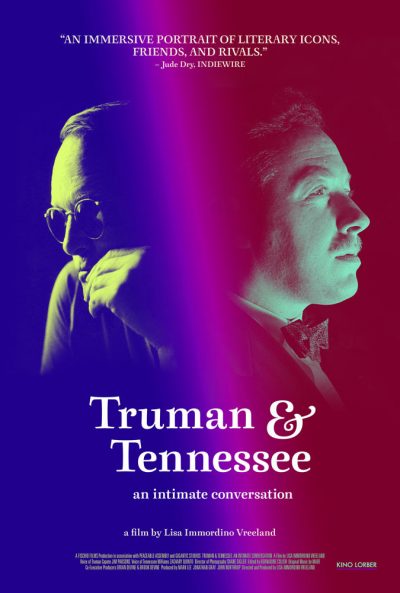
“Truman & Tennessee: An Intimate Conversation” (2021). Cast: Archive Footage: Truman Capote, Tennessee Williams, David Frost, Dick Cavett, Tom Brokaw, Gore Vidal. Voiceover Narrators: Jim Parsons, Zachary Quinto. Director: Lisa Immordino Vreeland. Web site. Trailer.
Genuine literary icons are rare. Writers who possess the ability to grasp profound insights and then deftly express them through prose don’t come along often. But, for those times when they’re present in uncharacteristically prolific numbers, it’s indeed fortunate for the world of literature. So it was in the mid 20th Century when two such giants were at the peak of their creativity, a pair of writers whose lives and works are profiled in the engaging new dual biography, “Truman & Tennessee: An Intimate Conversation.”
Truman Capote (1924-1984) and Tennessee Williams (1911-1983) were two of the greatest American wordsmiths of the 20th Century. Both were born in the South. Both rose to fame in the 1950s. Both wrote works that contained controversial subjects for the time. Both battled with issues of alcoholism and artistic stagnation. Both became celebrities in their own right, earning notoriety outside of their writing accomplishments. Both were unabashedly gay at a time when such revelations were quite uncommon. And, even though they wrote works through different milieus (Capote primarily penning novels and short stories, Williams composing stage plays), the parallels between their lives and works were uncanny. But, to a great degree, that’s not surprising, given that they were also friendly rivals and good, lifelong friends.
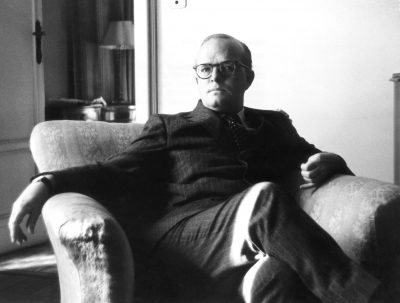
“Truman & Tennessee” is a rare dual biography chronicling the lives of these two writers, detailing the works of each and showing their compositions’ similarities in tone and thematically. The film also examines how their parallel personal lives significantly influenced the content of their writings. But, perhaps most importantly, director Lisa Immordino Vreeland’s offering presents an ongoing “dialogue” between Capote and Williams, drawing from materials they each wrote about one another and presented in alternating voiceover narrations read, respectively, by actors Jim Parsons and Zachary Quinto. These readings are further supplemented by archive footage of Capote and Williams in television interviews conducted by David Frost, Dick Cavett and Tom Brokaw. The result is an intriguing and introspective look into the hearts, minds and work of these two literary icons.
As most writers are well aware, it’s always wisest to draw upon what one knows when putting pen to paper. So it was for both Capote and Williams. They wrote about their Southern upbringing and heritage. They plumbed subject matter that was near and dear (or at least familiar) to them, often painful in nature and exploring themes they were acquainted with, such as alcoholism, abuse and sexual repression. And they both achieved tremendous acclaim for what they wrote, with many of their materials being made into movies, many of which are featured in a series of well-chosen film clips that effectively capture the themes and nature of their works.
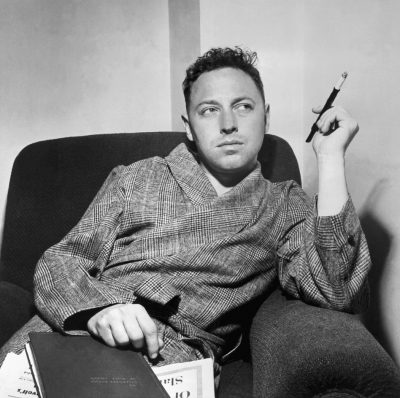
The processes that produce such results are both simple and complex. Their simplicity stems from tapping into the particulars of one’s experience. Their complexity comes from how one views them and translates those details into thoughts, beliefs and intents. But how does one reconcile the two?
From a theoretical standpoint, Capote and Williams provide us with an important example from which to draw. As evidenced by their writing, we see a pair of scribes who intuitively knew how to authentically convert these intangible notions into tangible creations. They drew from their experience and transformed those incidents into thoughts, beliefs and intents that they then used in penning their works.
That, in essence, is the foundation of the conscious creation process, the philosophy that maintains we tap into those resources for manifesting the reality we experience. Even if Capote and Williams were unfamiliar with this philosophy, they certainly were masters of its principles, as evidenced by the results they produced. And that’s important to the rest of us, because, if this practice can be employed successfully for composing a novel or stage play (as their examples illustrate), it can conceivably be used for the materialization of any other venture, be it painting a portrait, designing an interior space or simply making dinner. The process can be applied to virtually any undertaking, no matter what aspect of life we apply it to.
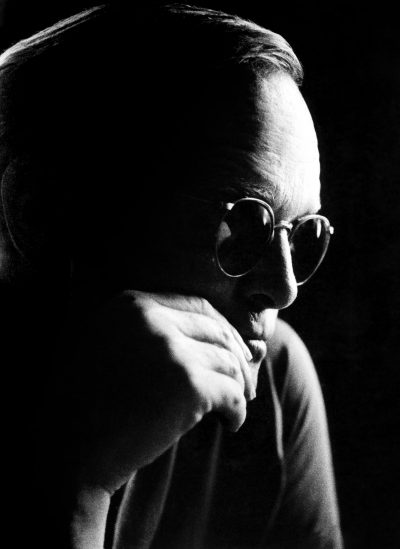
By drawing from what we know – the innermost thoughts, beliefs and intents of our true selves – we can operate from a standpoint of personal integrity. Even if those experiences aren’t the most pleasant but make for worthwhile creations (like good prose or drama, for example), the more we can delve into their depths to formulate beliefs that lead to something meaningful, the more authentic we can be in yielding those manifestations. Such authenticity tends to ring true, not only with us, but also with others, leading us to embrace the validity and fidelity of those creations, as well as to foster their acceptance at large, a condition that no doubt helps to account for the popularity and appreciation of the works of writers like Capote and Williams.
To bring these writings into being, Capote and Williams let their creativity flow freely, without hindrance or limitation, even when it came at a high personal cost. When Capote wrote In Cold Blood, for example, he became more than a little personally involved in the creation of this nonfiction novel and the fates of the convicted murderers it was based upon, a development that affected him profoundly. The impact was so intense and pervasive, in fact, that he descended into the depths of alcoholism and struggled to write anything new, issues that plagued him for the remainder of his life. Yet, in enduring this experience in bringing this book to life, Capote produced what is arguably one of the greatest literary works of the 20th Century.
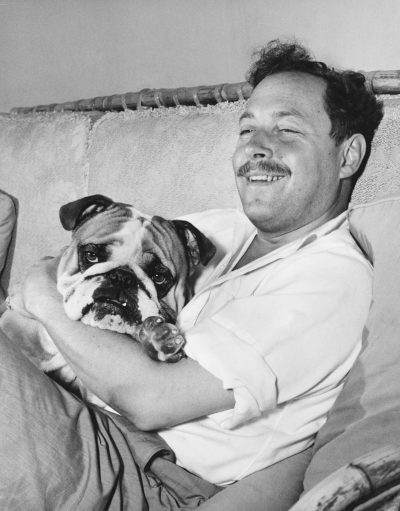
Of course, this naturally raises issues about the nature of what we create – and what beliefs we embrace in doing so. Such exercises may indeed yield remarkable results, but we must be cognizant of the costs involved. Is it wise to tap into territory that could potentially destroy us, even if it leads to a good book? Such instances truly can be prime examples of “be careful what you wish for.” As was the case for both Capote and Williams, suffering can indeed serve as a source of inspiration or as a stumbling block to personal and creative fulfillment.
Still, no matter what we draw from, when our creative efforts result in manifestations that stand the test of time, we live out our destiny, what conscious creators call value fulfillment, the act of being our best, truest selves for the betterment of ourselves and those around us. Capote and Williams gave us a wealth of literary and theatrical classics, enriching our cultural lives and enlightening us to some of life’s most challenging circumstances. It also helped that they had each other to help guide one another in these undertakings, something we should all bear in mind when it comes to consulting our kindreds in taking on creative initiatives of our own. With such an outlook and resources like these, there’s no telling what we may be capable of bringing into being in our efforts to make the world a better place for all of us.
Bringing together the insights and words of two legendary writers in one film is an intriguing approach to the biographical documentary genre, an approach employed cleverly and skillfully in this offering. By combining archive interview footage with voiceovers of their writings, viewers see a picture emerge not only of these two gifted artists, but also the parallels between their respective backgrounds, the nature of their longstanding friendship and the ways in which their personal lives influenced their work. These discussions are supplemented by numerous clips from film and television adaptations of their novels and plays, including “A Streetcar Named Desire” (1951), “Cat on a Hot Tin Roof” (1958), “Baby Doll” (1956), “The Night of the Iguana” (1964), “The Glass Menagerie” (1973), “Breakfast at Tiffany’s” (1961) and “In Cold Blood” (1967), to name a few. While this release is not always especially revelatory about either of these well-known individuals, it’s nevertheless quite intimate and authentic in their on-screen depiction, especially in the archive interviews. If nothing else, this film puts an interesting spin on its material and brings its protagonists back to life, even if only for a little while. The film has been playing in limited theatrical release and is available for streaming online.
Perhaps the greatest attribute of the works of these writers is the gifts to us that they represent. We should be grateful for these literary and theatrical masterpieces for the contributions they have made to the world of the written word, additions that have benefitted us all. Truman and Tennessee may not have had the easiest time bringing these materials to life, but their efforts were rooted in integrity and a desire to capture the truth. They have enriched us, both for their insights and authenticity, speaking to us in a manner that’s simultaneously personal and universal, results that only an icon can achieve.
Copyright © 2021, by Brent Marchant. All rights reserved.



